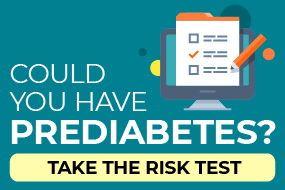The diabetes program at Lexington-Fayette County Health Department has three goals:
Educate those with or at risk for diabetes
Prevent or delay the development of type 2 diabetes through lifestyle change
Support those living with diabetes and/or working to manage weight
What is prediabetes?
With prediabetes, blood sugar levels are higher than normal but not high enough for a type 2 diabetes diagnosis.
Prediabetes is a serious health condition that increases your risk of developing type 2 diabetes, heart disease, and stroke.
The good news? If you have prediabetes, the CDC-led National Diabetes Prevention Program lifestyle change program can help. When you join, you’ll learn to make lifestyle changes that lower your risk and improve your health.
What causes prediabetes?
Insulin is a hormone that acts like a key to let blood sugar into cells for use as energy. If you have prediabetes, the cells in your body don’t respond normally to insulin. Your pancreas makes more insulin to try to get cells to respond. Eventually your pancreas can’t keep up, and your blood sugar rises. This sets the stage for prediabetes—and type 2 diabetes down the road.
Signs and symptoms
You can have prediabetes for years but have no clear symptoms. It often goes undetected until serious health problems such as type 2 diabetes show up. Talk to your doctor about getting your blood sugar tested if you have any risk factors for prediabetes, such as:
- Being overweight
- Being 45 years or older
- Having a parent, brother, or sister with type 2 diabetes
- Being physically active less than 3 times a week
- Ever having gestational diabetes (diabetes during pregnancy)
- Giving birth to a baby who weighed more than 9 pounds
- Having polycystic ovary syndrome
Race and ethnicity are also a factor. African American, Hispanic/Latino American, American Indian, Alaska Native, Pacific Islander, and some Asian American people are at higher risk.
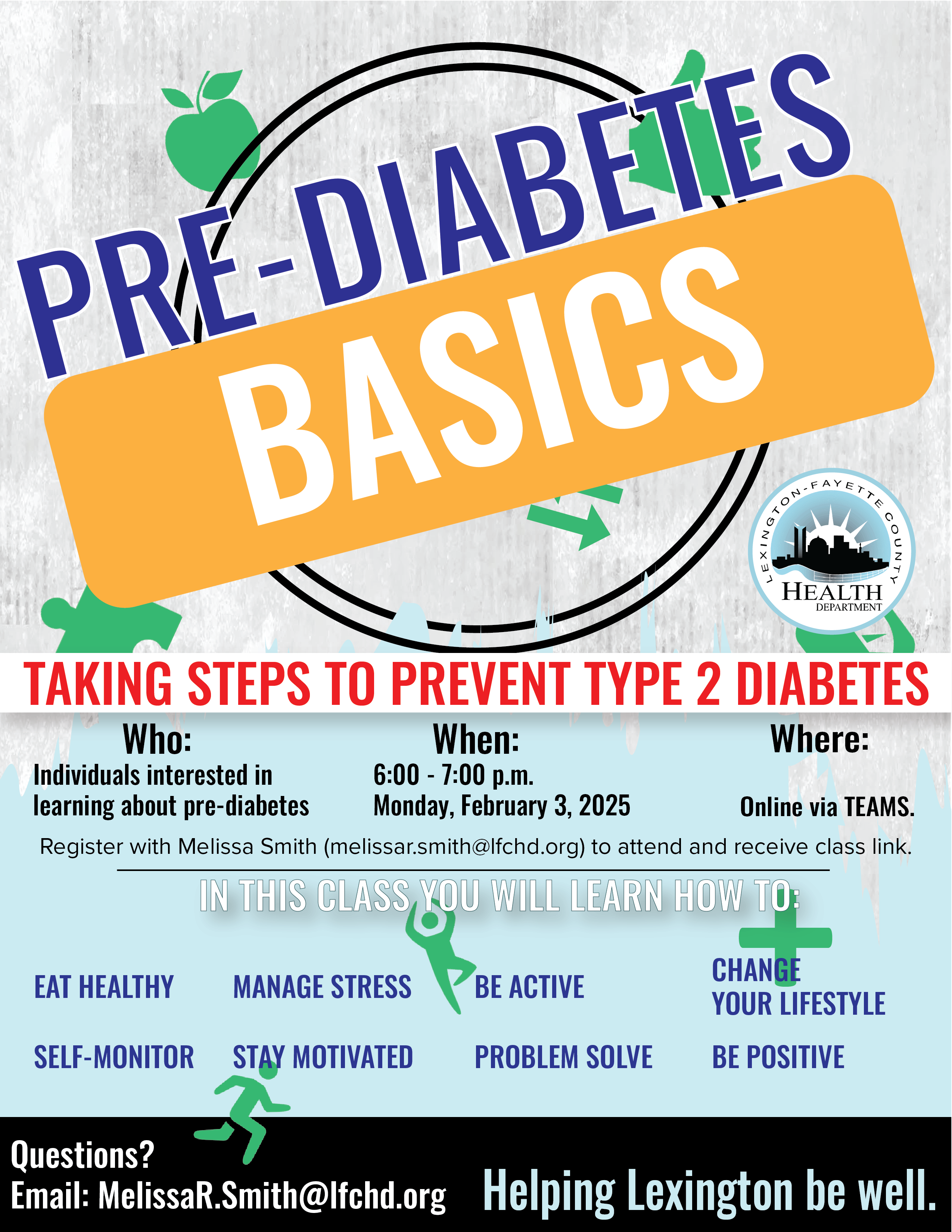
Learn to manage diabetes using knowledge, skills, and tools.
Did you know..
Almost 14% of all Kentuckians have diabetes and 34% have prediabetes, many more don’t even know they have it. This makes our state the 8th highest in the country for diabetes prevalence.
Serious complications can happen when diabetes is left uncontrolled. Learn how to prevent or manage diabetes today!
How we can help!
The Lexington-Fayette County Diabetes Program staff are here to help, free of charge.
We offer a variety of programs to help you learn more about it. Some are in-person, some taught live – online using zoom, and some are online recorded modules.
See details below and fill out the ‘contact us’ form for more information or to register.
The American Diabetes Association (ADA) launched its first risk test in 1993. The risk test was adapted by a published study and validated using data from the Centers for Disease Control and Prevention (CDC). To simplify the test, only health traits that people would know about themselves were included, such as age, height, and weight, but not blood sugar or cholesterol levels.
EDUCATE
The more you know.
Whether you are new to having diabetes or have had it for years, when you receive diabetes self-management education and support (DSMES) services, you will:
- Work with a diabetes care and education specialist to set and track goals.
- Learn how to use knowledge, skills, and tools to build confidence and emotional strength to manage diabetes.
- Practice how to fit diabetes care into all parts of your daily routine—like when and what you eat and how you solve problems.
- Find ways to get support (in person and online) from your family, friends, community, and health care team.
This program is available several times a year, but there are similar programs starting each month, taught by other Kentucky health departments or healthcare providers. Our staff can help you find one that meets your needs.
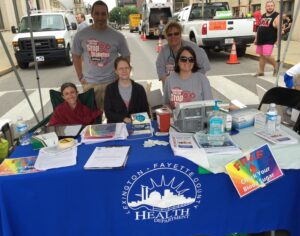
Presentations and Screenings
Presentations and screening for community groups: Looking for an engaging speaker to share cutting edge information with your group on diabetes, prediabetes, diabetes prevention, heart health, or healthy eating? Interested in diabetes screening? Certified Diabetes Care & Education Specialists, Registered Dietitians and Health Educators are available to assist.
More than 1 in 3 American adults has prediabetes.
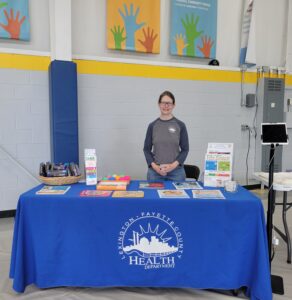
Health education resources
Free health education resources: A variety of health education displays, props, and presentations are available to borrow at no charge. They book up months in advance. Call (859) 288-2446 to inquire about or reserve current available resources.

Diabetes Basics classes
Diabetes Basics classes (general overview classes): These 2-hour classes led by a Certified Diabetes Care & Education Specialist provide an overview of core diabetes self-management education topics.

Nutrition Basics classes
Nutrition Basics classes: These 2-hour classes led by Registered Dietitians provide an overview of the core diabetes nutrition guidelines and recommendations.

Phone consults
Phone consults: Have a quick question about diabetes, prediabetes, or eating healthy? Call (859) 288-2446 and ask to speak to one of our Registered Dietitians or Certified Diabetes Care & Education Specialists.
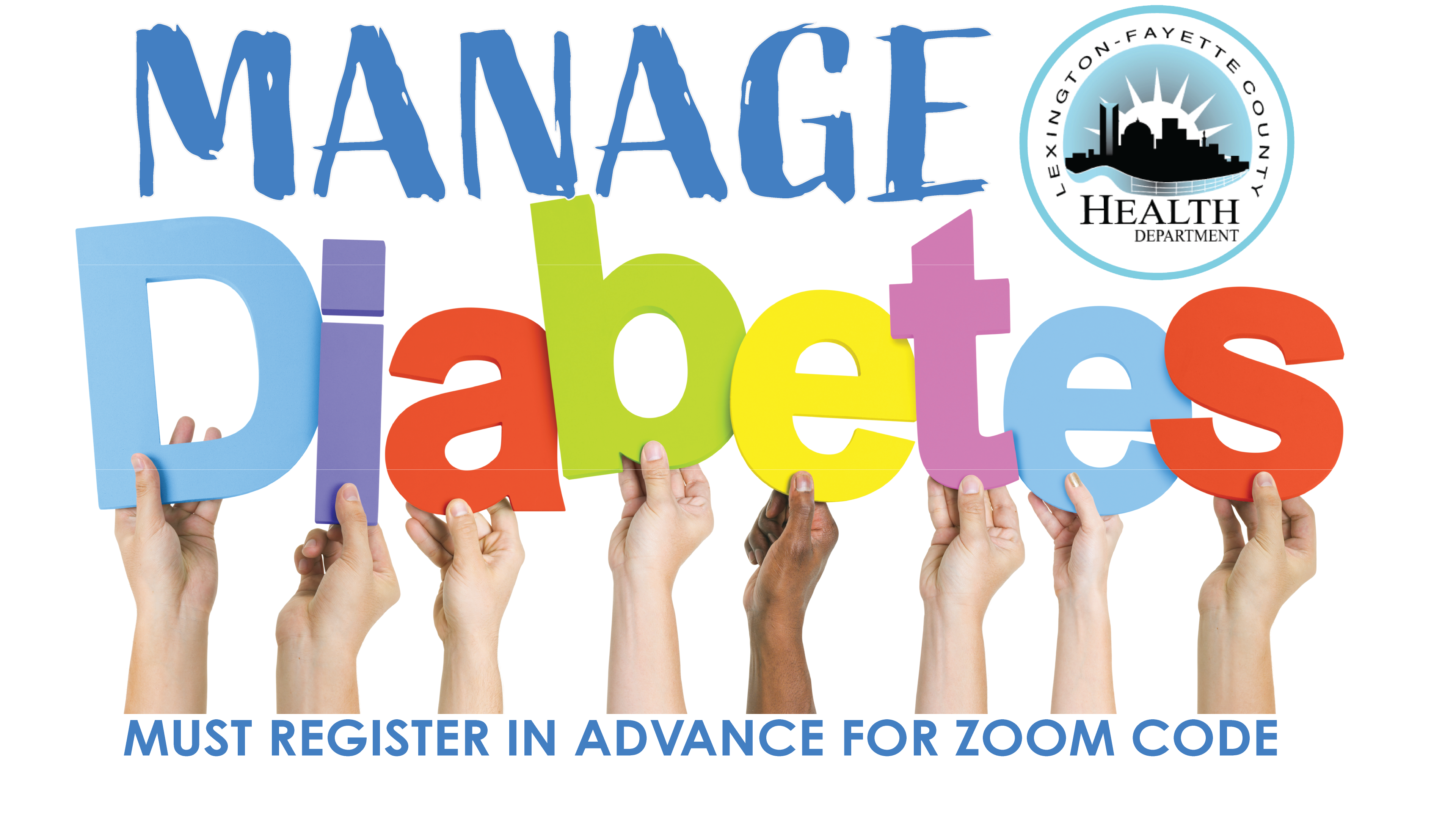
Newly diagnosed with diabetes or new to diabetes education?
Try Diabetes Kickstart. This is an animated video series created by the CDC to be a first step into learning more about diabetes and to raise awareness of DSMES services (like our Healthy Living with Diabetes class series) where you can continue learning, interact and get support from a diabetes care & education specialist.
*Based on the ADCES7 Self-Care Behaviors.
Did you know..
This pre-recorded, self-paced video series is designed to introduce and explain the key concepts of diabetes management* and guide participants to start understanding how healthy lifestyle behaviors play an important part of their diabetes management and progression. After watching this program, we encourage you to let us know if you have questions or would like to sign up for a DSMES program. Call us at (859) 288-2344 to learn about follow up programs or complete our contact us form via the link below.
How we can help!
It’s available in Spanish, too!
“I learned a lot about diabetes in this class. The teachers did a great job. They explained things very well. The things I learned about diabetes in this class makes me want to take better care of myself. Great location. ” – Marilyn
Prevent
Small changes lead to big results.
- Small changes to your lifestyle can help to prevent or delay diabetes, even if you’ve been diagnosed with prediabetes. Your doctor will help you create a plan and set goals that work for you. They may also refer you to a Centers for Disease Control and Prevention (CDC) recognized, evidence-based lifestyle change program. Don’t hesitate to ask for help along your journey.
Overweight? Know the impact.
- If you have overweight or obesity, it impacts more than your risk of developing type 2 diabetes. It leads to unhealthy cholesterol, high blood pressure, heart disease, high blood glucose and stroke. The good news? Losing just 10-15 pounds can make a big difference.
Most people find it easier to make healthy changes in a few small steps instead of all at once. Set realistic goals within a timeframe that works for you, and don’t let stalls or setbacks throw you off course.

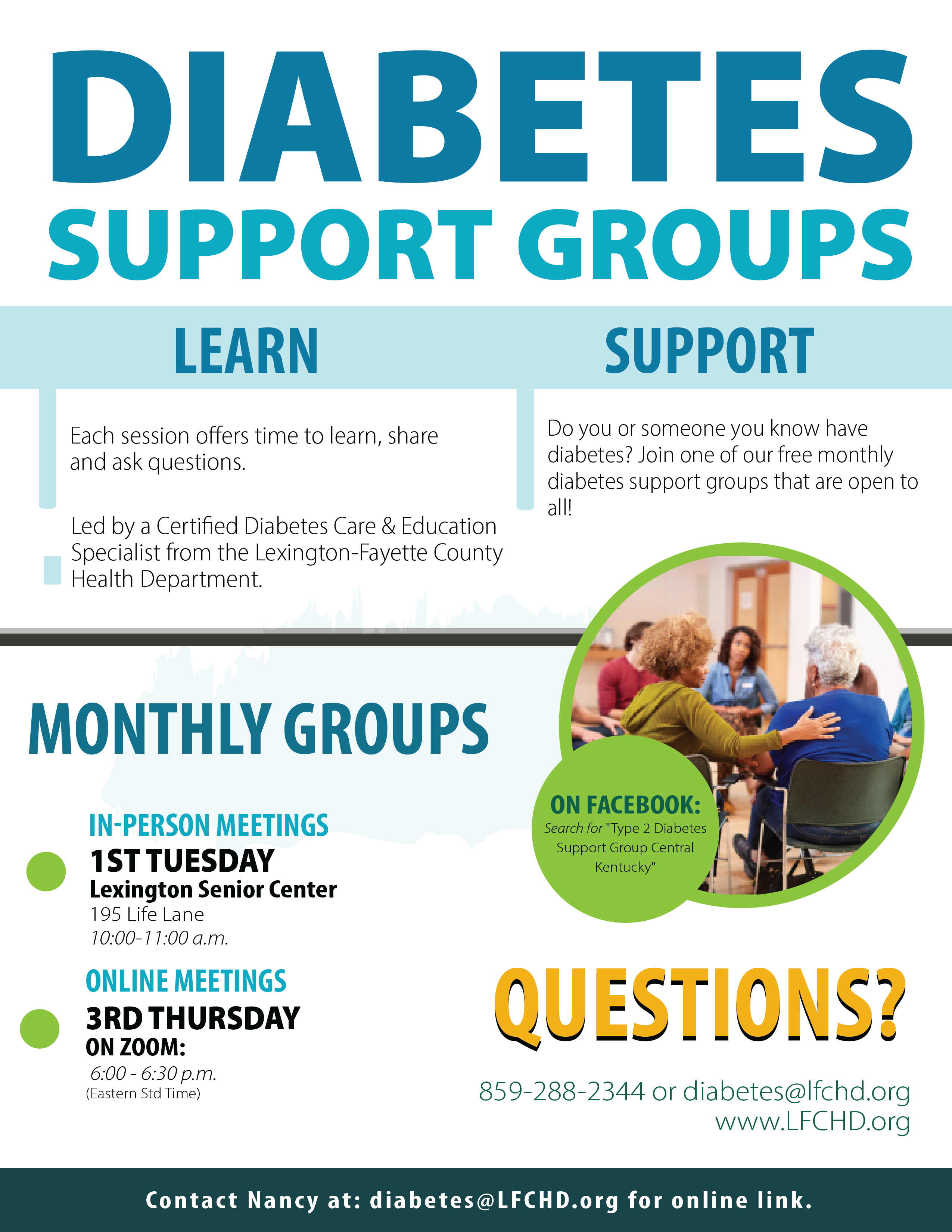
Support
- Diabetes support groups: The monthly support groups throughout the community focus around a diabetes-related self-management topic with the opportunity for sharing and getting questions addressed. One group is Spanish-speaking. View our event calendar to find a support group or class.
- Participate in local and statewide diabetes coalitions: Work together with others in the community to raise awareness about diabetes and diabetes prevention.
Helpful Resources
American Association of Diabetes Educators
Diabetes Forecast magazine

